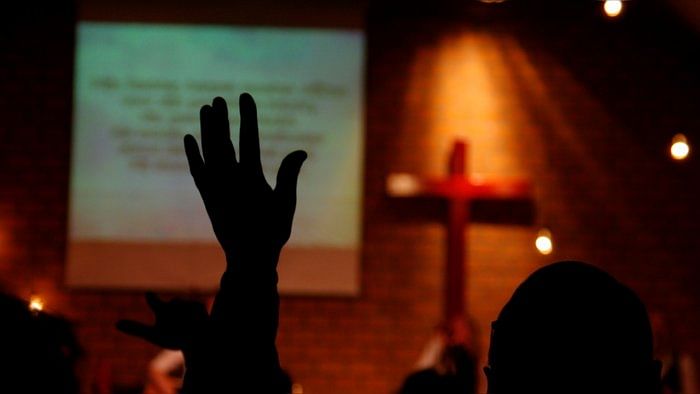
Come December, Christians begin preparations in earnest as they look forward to celebrating Christmas in a solemn, peaceful and joyous manner, the highpoint being the Holy Mass in churches.
But this time around, Christians in Karnataka are a worried lot in light of the spate of recent attacks on Christian places of worship and the proposal to table the anti-conversion bill during the upcoming winter session of the Assembly in Belagavi from December 13-24.
To highlight recent cases, in September, members of the Hindu Jagarana Vedike, barged into a church in Udupi, alleging that people were being illegally converted to Christianity by the pastor.
In October, members of the Bajrang Dal and Vishwa Hindu Parishad gathered inside a makeshift church in Hubbali district and started singing bhajans, alleging that the pastor was forcefully converting people.
Since January, there have been 32 reported incidents of attacks on churches in Karnataka. In Belagavi, some pastors were recently told by the police not to conduct prayer meetings as right-wing groups may attack them and the police will not be able to give them protection, according to media reports.
This is frightening, and a sad commentary on secularism, prompting even the Archbishop of Bengaluru to say that there are signals suggesting it is not a good time to be a Christian in Karnataka.
Ever since the issue of religious conversions was raised by a BJP MLA from Hosadurga during the monsoon session of the Assembly, the Christian community has strongly opposed the proposal of the anti-conversion bill, questioning the need for such an exercise when sufficient laws and court directives are in place to monitor any aberration of the existing laws.
An enquiry into these allegations conducted by the taluk administration noted that there were no such attempts of forced conversions; those who converted to Christianity did it of their own volition, Rev. Peter Machado, Archbishop of Bengaluru said in a statement on December 4 after a peace assembly of Christians.
Many are of the view that the anti-conversion bill is primarily targeted against the minorities. The first anti-conversion law was passed in Odisha in 1967, leading to attacks on Christians, culminating in the Kandhamal genocide in 2007-08. After Odisha, six other states followed suit, resulting in increased attacks on Christians in those states.
Today, there is enough documentation to show that persecution of Christians is taking place in many states and Union Territories in India. Christians fear the proposed law will only make the situation worse.
“The issue of forced conversion is a highly exaggerated subject. Many of our BJP leaders have studied in Christian schools and they have also chosen Christian hospitals for medical treatment. None of them were forcefully converted,” asserted Machado.
It must be pointed out that if there were indeed rampant conversions as alleged, the Christian population should have seen an increase. On the contrary, official statistics show the opposite. In Karnataka, the Christian population was 1.91% as per the 2001 Census, and it decreased to 1.87% in 2011.
Moreover, the anti-conversion bill is a violation of the Constitution. Article 25 of the Constitution guarantees that “all persons are equally entitled to freedom of conscience and the right freely to profess, practise and propagate religion”, subject to public order, morality and health and to other provisions of the part on fundamental rights.
Even Ambedkar, who was the chief architect of India’s Constitution, had converted to Buddhism, and he did not have to seek the permission of the State to do so.
Isn’t then such a law as proposed now contrary to the principles outlined by the Constitution?
Last but not the least, the process of passing such a law hastily is flawed. The Karnataka government says that the draft of the bill will be ready soon and it will be tabled in the winter session starting December 13. This leaves little time for a public discussion on a matter of crucial importance.
There’s another issue troubling the Christian community. In October, the Legislative Committee on Backward Classes and Minorities Welfare ordered a survey of authorised and unauthorised churches and their personnel in Karnataka.
The question that many are asking is: If such a survey is desirable, why single out only Christians, why not the places of worship of other religions, too? Isn’t this discriminatory?
Given the bogey of conversion and anti-religious feelings being whipped up, an anti-conversion law, if passed, could be abused by religious fundamentalists, as seen in other states that have passed such a law.
At this juncture, it is imperative that the government ensures communal harmony and peace by safeguarding Christian worshippers during prayer services and keeping right-wing groups in check.
And in the interests of the minorities and upholding democratic values, the anti-conversion bill must not be tabled as there is no need for such a law.
Check out the latest videos from DH: